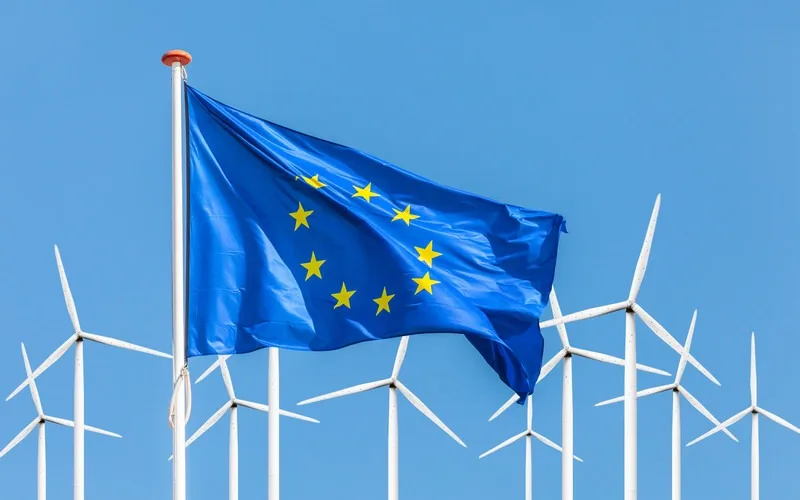By Josep Borrell Fontelles,
High Representative of the Union for Foreign Affairs and Security Policy, Vice-President of the European Commission
“Present trends are racing our planet down a dead-end 3°C temperature rise”, explained UN Secretary-General António Guterres recently. If we do not act decisively, climate change will pose an existential threat for humanity in coming decades. It is already a major risk multiplier for conflict and instability.
Since 2008, floods and heatwaves have led to the forcible displacement of more than 20 million people every year according to UNHCR. According to the World Bank, by 2050, more than one billion people may have insufficient access to water and more than 200 million may be forced to migrate.
Water scarcity and food shortages are already fuelling conflicts in the Sahel, the Horn of Africa and other parts of the world. Of the 20 countries most vulnerable to climate change, twelve are mired in conflicts. Authoritarian powers are also taking advantage of this fragility by trying to control governments and secure raw material for their own geopolitical interests.
To avoid the catastrophic future of a +3°C climate, the EU is doing its part. With the European Green Deal, we have set out the EU’s ambition for 2030 to reduce our greenhouse gas emissions by at least 55%, produce more than 42.5 % of our energy from renewable sources and increase energy efficiency by at least 11.7 %. We strive to become climate-neutral by 2050.
To achieve this, EU’s climate action is based principally on putting a price to CO2 emissions. However, if this were to result in carbon-intensive activities simply relocating outside Europe, the so-called carbon leakage, it would mean the EU losing jobs without achieving any emissions reduction globally.
That is the reason why it is complemented by a Carbon Border Adjustment Mechanism (CBAM) to ensure that the most carbon intensive goods imported in Europe are also subject to a comparable carbon pricing. It is not protectionist. It is simply the necessary counterpart of our ambitious emissions reduction measures to guarantee that they are effectively a win for the planet.
While we decarbonise our own economy, we cannot wash our hands of the greenhouse gas emissions caused outside the EU by our consumption of imported goods. This is why we are also greening our trade policy. We want to ensure, in particular, that the products we import no longer cause deforestation, one of the greatest threats to climate and biodiversity.
While most will share these objectives, I know that these measures require further engagement with some of our partners on the requirements stemming from this EU law. We are ready to support them implementing these measures and address together the common challenge of deforestation.
The urgent green transition will shake up the global balance of power. For the EU this shift holds promises and threats. On the one hand, it will lessen the high political and economic cost of our dependence on fossil fuels as illustrated by Russia’s war of aggression against Ukraine. On the other hand, it risks creating new dependencies on critical raw materials and products. Therefore, diversification of supply is key for European security. We need to strengthen our ties with Africa, Latin America, South Asia… with tailor made partnerships that allow adding value and creating jobs in our partner countries.
Europe bears an historical responsibility for climate change but with currently only 7.5 % of global emissions, what we do in the EU has only a limited impact on world climate. To fight climate change, there is no other solution than a global one. Multilateralism is increasingly under pressure. If we succeed to agree on how to meet the targets of the Paris Agreement, we will not only save the future of our children but also show that multilateralism can deliver.
At COP 28 in Dubai, a gear change is needed. The EU will push for the phase out of unabated fossil fuels and of all fossil fuel subsidies, the doubling of energy efficiency measures and the tripling of renewable energy capacity worldwide. To succeed, we will need the buy-in of the other industrialised nations and also of China. China has certainly built many renewable capacities, but it is also burning more coal than the whole rest of the world combined.
The green transition will succeed only if it is just and benefit all. The most vulnerable countries are not contributing significantly to global warming, but risk bearing the brunt of it. They too will have to be part of the global race to net-zero, but they need support. The EU stands ready to help partners adapt to climate change and embrace the green transition while avoiding our past mistakes.
With €23 billion in 2021, the EU, its Member States and the European financial institutions are already the largest contributors of public climate finance to developing economies and developed countries are finally on track to meet the goal of $100bn annually. Yet, we must now think beyond 2025, when the current pledge ends.
It is high time to align private and public financial flows with the Paris Agreement and go from billions to trillions of climate finance. International Financial Institutions and Multilateral Development Banks need to be reformed to better support global public goods. The new fund responding to loss and damage must also acquire the needed financial firepower. The first substantial pledges are encouraging. Here also, will China be an indispensable partner.
In an increasingly multipolar world, marked by the return of power politics, we need more than ever to come together to fight the biggest global challenge of our time, climate change.
Editor’s note: – views in the article reflect the views of the writer only!!
